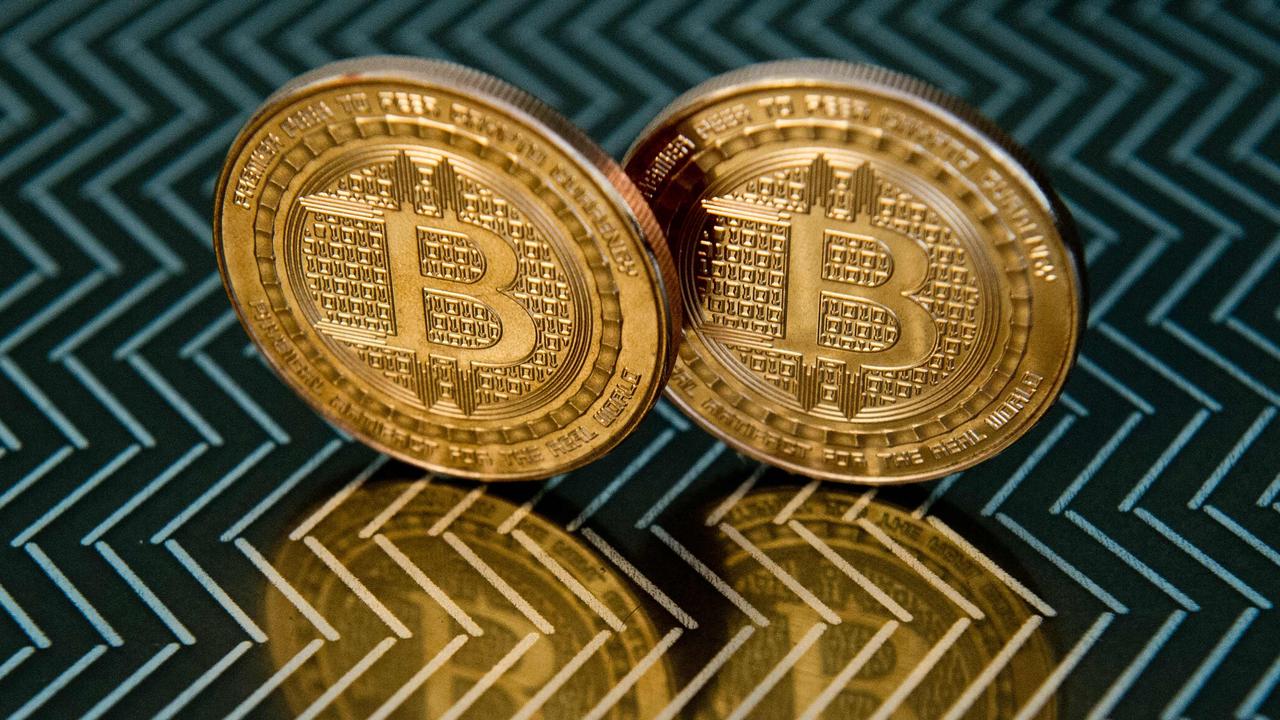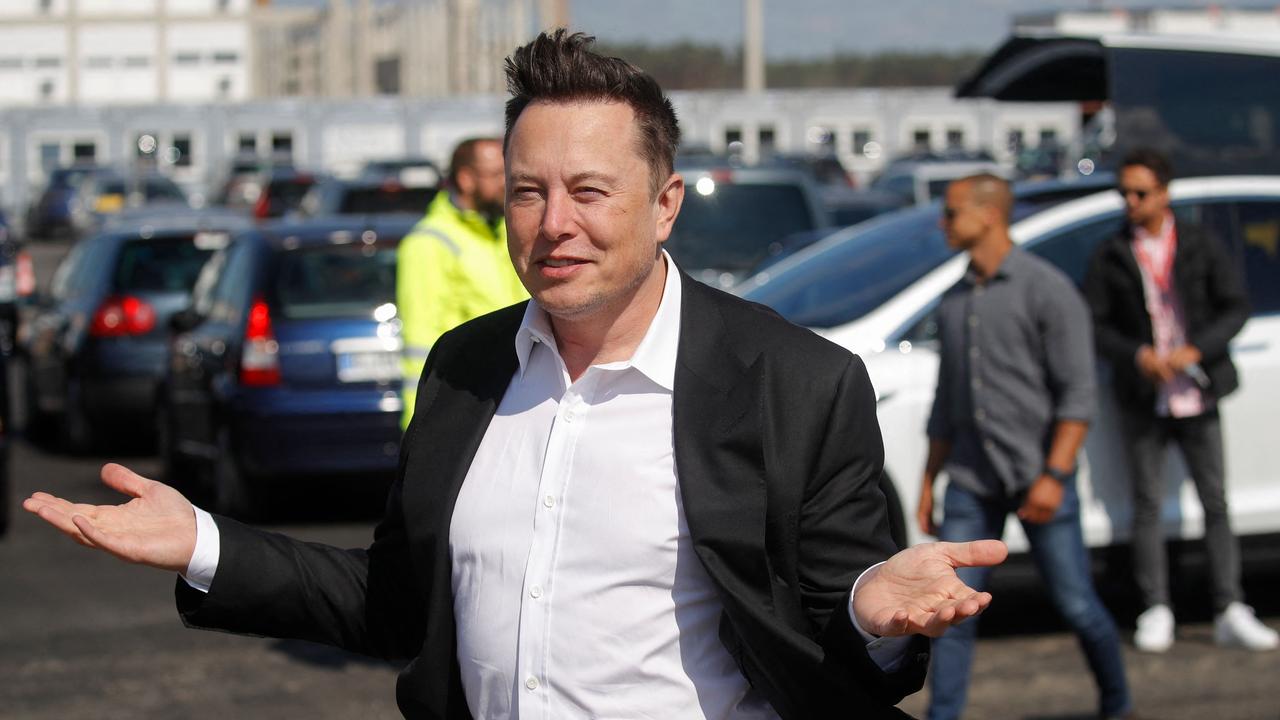Bitcoin, dogecoin price: Weird Elon Musk tweet sends markets wild
For cryptocurrency investors, the past week has been a wild ride. Now a bizarre Elon Musk tweet has added yet another twist.
For anybody who has money tied up in cryptocurrencies, the past week has been a bit of a wild ride to say the least.
The past 24 hours has seen bitcoin and many other coins smashed in the market after China declared the digital tokens cannot be used as a form of payment, but the rollercoaster ride didn’t stop there.
In the dead of night (for Australian investors at least) the man who has had more influence on the price of cryptocurrencies than anyone else, Elon Musk, fired out a cryptic tweet that muddled matters even further.
His company Tesla bought $US1.5 billion ($A1.94 billion) in bitcoin earlier this year to hold on its balance sheet.
And in the above-mentioned tweet overnight, Mr Musk posted a diamond and praise hands emoji – a reference to the term “diamond hands” used by WallStreetBets traders.
“Credit to our Master of Coin,” he added.
Tesla has 💎 🙌
— Elon Musk (@elonmusk) May 19, 2021
It’s understood the tweet is supposed to indicate that Tesla is holding on to its bitcoin position, and the world’s most well-known cryptocurrency rebounded for a short period at least.
According to Coindesk, the currency has seen an 11.89 per cent drop in the past 24 hours, but around the time of Mr Musk’s tweet, the value shot up from around $US32,000 ($A41,000) to roughly $US40,000 ($A52,000).
However it’s a far cry from its record high of more than US$60,000 ($A77,600) in April.
Other well-known coins have fared even worse – ethereum lost 24.32 per cent, XRP lost 28.8 per cent and stellar lost 27.01 per cent all in the past 24 hours.
Interesting. pic.twitter.com/8mTcnwFoLl
— TradingView (@tradingview) May 19, 2021
Musk tweets cause wild market fluctuations
Sending shockwaves through the market is nothing new for the Tesla founder, whose often cryptic tweets are known for wreaking havoc.
In March, he announced customers would be able to buy Tesla cars using bitcoin.
But he seemingly changed his mind this month when he tweeted that the company was suspending plans to accept payments in bitcoin, citing concerns over the cryptocurrency’s carbon footprint. Bitcoin plummeted 12 per cent after his announcement.
On February 9 this year Mr Musk revealed that Tesla would invest $1.95 billion in the cryptocurrency.
In his announcement this week, Musk said Tesla would not be selling any bitcoin.
“We intend to use it for transactions as soon as mining transitions to more sustainable energy,” he said.
However, he later fuelled speculation Tesla might dump its substantial holdings on Twitter.
RELATED: Astonishing fallout from one-word tweet

RELATED: Elon Musk goes to war with bitcoin
“Bitcoiners are going to slap themselves next quarter when they find out Tesla dumped the rest of their #bitcoin holdings. With the amount of hate [Elon Musk] is getting, I wouldn’t blame him …” @CryptoWhale posted.
Mr Musk responded by writing: “Indeed.”
That send the price of bitcoin plunging. He later clarified that Tesla had not sold any bitcoin.
The market has also been shaken up by China’s move to ban crypto payments.
It means that institutions there, including banks and online payments channels, must not offer clients any service involving cryptocurrency.
“Recently, crypto currency prices have skyrocketed and plummeted, and speculative trading of cryptocurrency has rebounded, seriously infringing on the safety of people’s property and disrupting the normal economic and financial order,” three industry bodies said in a joint statement on Tuesday.
The institutions must not provide saving, trust or pledging services of cryptocurrency, nor issue financial product related to cryptocurrency, the statement also said.
RELATED: Crypto market falls $437b after one tweet

Beijing has not barred individuals from holding cryptocurrencies, but warned about the risks of cryptocurrency trading.
The industry bodies said the virtual currencies “are not supported by real value”, their prices are easily manipulated, and trading contracts are not protected by Chinese law.
Bloomberg reports that Beijing, since 2017, has abolished initial coin offerings and clamped down on virtual currency trading within its borders, forcing many exchanges overseas.
The country was once home to about 90 per cent of trades but the lion’s share of mining and major players have since fled abroad.




